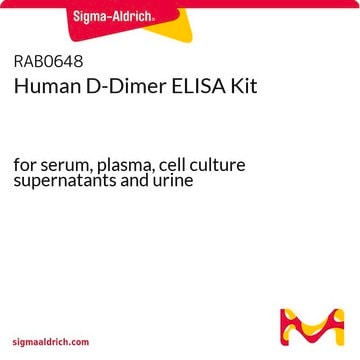SAB4200598
Monoclonal Anti-FTH1 antibody produced in mouse
~1.0 mg/mL, clone FTH24, purified immunoglobulin
Synonym(s):
Monoclonal Anti-FHC, Monoclonal Anti-FTH, Monoclonal Anti-FTH1, Monoclonal Anti-FTHL6, Monoclonal Anti-OK/SW-cl.84, Monoclonal Anti-PIG15, Monoclonal Anti-PLIF, Monoclonal Anti-cell proliferation-inducing gene 15 protein, Monoclonal Anti-ferritin H subunit, Monoclonal Anti-ferritin heavy chain, Monoclonal Anti-ferritin, heavy polypeptide 1, Monoclonal Anti-placenta immunoregulatory factor, Monoclonal Anti-proliferation-inducing protein 15
About This Item
Recommended Products
biological source
mouse
conjugate
unconjugated
antibody form
purified immunoglobulin
antibody product type
primary antibodies
clone
FTH24, monoclonal
form
buffered aqueous solution
species reactivity
human
concentration
~1.0 mg/mL
technique(s)
flow cytometry: 10-20 μg/test using HeLa cells
immunoblotting: 0.5-1.0 μg/mL using total cell extracts of HEK-293T cells overexpressing FTH1 (expected: ~26kDa).
indirect immunofluorescence: 5-10 μg/mL using HeLa cells
isotype
IgG1
UniProt accession no.
shipped in
dry ice
storage temp.
−20°C
target post-translational modification
unmodified
Gene Information
human ... FTH1(2495)
General description
Specificity
Immunogen
Application
- immunoblotting
- immunocytochemistry
- flow cytometry
- immunofluorescence
Biochem/physiol Actions
Physical form
Storage and Stability
Disclaimer
Not finding the right product?
Try our Product Selector Tool.
Storage Class Code
10 - Combustible liquids
Flash Point(F)
Not applicable
Flash Point(C)
Not applicable
Certificates of Analysis (COA)
Search for Certificates of Analysis (COA) by entering the products Lot/Batch Number. Lot and Batch Numbers can be found on a product’s label following the words ‘Lot’ or ‘Batch’.
Already Own This Product?
Find documentation for the products that you have recently purchased in the Document Library.
Our team of scientists has experience in all areas of research including Life Science, Material Science, Chemical Synthesis, Chromatography, Analytical and many others.
Contact Technical Service







